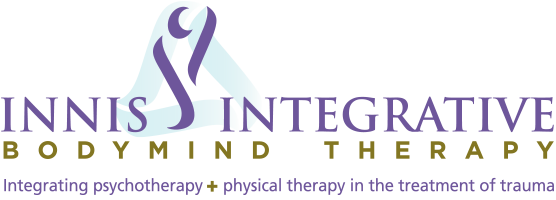Are you feeling frozen inside, living behind the mask of a brave face?
Have you recently lost a loved one in a traumatic way?
Has an illness, injury or traumatic event robbed you of a valued part of yourself?
Are you trying to cope with the loss, but unsure how?
Perhaps you’ve resorted to sporting a brave face to get through the day.
Few things in this world are as heartbreaking as a trauma-related loss. In these situations, there is no easy retreat into forgetfulness or a quick reprieve from the pain. You feel every last bit of the hurt. The traumatic nature of the loss may even haunt your mind with persistent images and rumination.
Intrinsically, this type of loss presents a two-fold challenge: coping with the trauma while simultaneously experiencing the loss. Often the shock of the trauma itself tends to take over. However, to heal well, grieving is important, too.
Continue on to learn why you need to grieve your trauma-related losses.
Grieving Can Help Move You Forward
Grieving unfolds its natural sequence in five general, though variable stages. Experiencing these stages fully often allows the grieving cycle to come to culminate in healing and the ability to move on. In other words, allowing yourself to grieve properly gives your own emotions the chance to come to terms with what’s happened.
These stages include:
Denial – Disbelief that the loss occurred.
Anger – Frustration and feelings of unfairness.
Bargaining – Hope against reality; pleas to self, life, or the divine for an altered reality
Depression – Sense of helplessness since mortality wins every time.
Acceptance – Embraces mortality and also life itself.
When you come to terms with the trauma-related loss, you are then able to find peace within your own life. Even though you may always feel like a part of you is missing, you will have the strength to move forward with hope and a renewed sense of vitality.
Grieving Offers Multifaceted Healing
Many people perceive grief to be feelings of sadness. It’s so much more, though. For instance, how you interpret your recent loss will determine your grieving experience. No two grieving experiences are alike.
One person may have lost their loved one in a traumatic event such as a motor vehicle accident, suicide, or even a homicide. Another individual might be facing their own loss by means of a terminal illness or an unexpected physical complication.
To fathom the idea that these aforementioned losses can be measured on the same scale seems farfetched. Comparing a violent murder to a death in a hospital bed doesn’t seem fair. Sadly, death doesn’t often seem fair.
This notion of unfairness is at the heart of multifaceted healing. No matter where your loved one’s life ended, it could have been traumatic for you.
What this means is that your emotional wounds not only bleed with the actual loss but also the way the trauma played out. It’s important to remember that the grieving process can bring healing to more than the loss itself. It can heal other emotional wounds surrounding your loss.
Grieving Can Prevent Depression
Isn’t grieving the same as being depressed? In short, no.
Depression is part of the grieving process, but not a total encapsulation of grief itself.
Depression is the fifth stage of the grieving process. This phase is characterized by thoughts of mortality and the hopelessness you may feel in knowing death finds us all. Some people get stuck at this stage. Some never get to it – mostly those who put on a brave face.
Rather, these brave-faced individuals approach life in a seemingly courageous way, but all the while, allow their emotions to eat away at them from the inside out.
Allowing yourself to fully experience grief will help ward off the future depression caused by unresolved grief.
Grieving Can Relieve Physical Discomfort
What we feel in our emotions tends to mirror in our bodies. In other words, facing a trauma-related loss can wreak havoc on your body and mind. The initial shock of the loss can trigger nausea, shortness of breath, and even a racing heartbeat.
The struggle doesn’t stop there. As time passes and you attempt to move forward, it’s common to try to “tough it out.” This approach doesn’t leave room for proper healing.
A brave face serves as an invitation for digestive issues, insomnia, muscle tension, headaches, and more. Your body and mind are connected. Your body knows you are hurting emotionally and holds that hurt as much as your metaphorical heart. Your body just tends to be a little more honest with you.
By removing the brave face mask and allowing yourself to grieve, you give your body permission to let go of the “frozen, pent-up” tension, aches, and pain. Once your emotions are released, the physical discomfort often follows suit. From here it is possible to find a new expression of you and your precious life force.
I invite you to contact me here for more information.
Click here for more information on Grief Counseling



